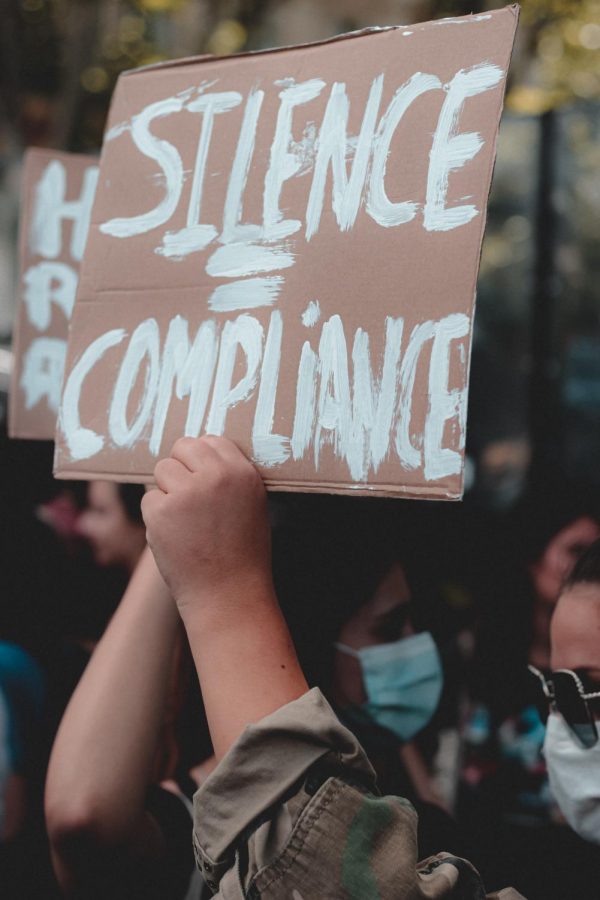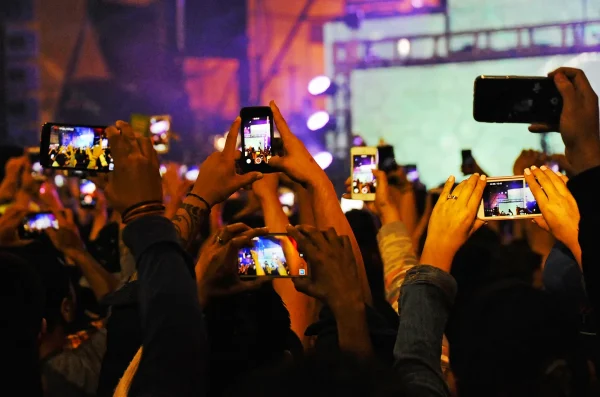Help keep free speech free
Colin Horning questions the motive behind social media censoring.
Feb 11, 2021
As the Internet age and social media have become more prominent, so has the debate regarding free speech online. Twitter, Facebook, YouTube and other large technology companies have become the public squares for billions of people around the world to share their thoughts and opinions, and also allows for mass gatherings and public events to be communicated around the masses. But as the amount of usage on the Internet has increased, so has the amount of censorship and thus a debate over whether or not speech is truly free in the 21st century.
The beginning of the First Amendment states that “Congress shall make no law..” meaning that the government cannot outlaw forms of speech. The founding fathers knew that freedom of speech, as well as assembly, press, petition and religion, were extremely important for the well-being of a free society. However, they could not have imagined or prepared for the technologies of 21st-century America and how these tech companies are handling the general public practices free speech nowadays. Tech companies have become so large and dominant in the world that they have usurped the First Amendment: they have no ties whatsoever to the U.S. Constitution, so they can allow or disallow whatever forms of speech that they please without repercussions.
When you sign up for a social media site, you agree to their terms of service. It’s usually the long, legal agreement that no one actually reads yet checks “I agree” before signing up. Oftentimes, these will have clauses saying “no hate speech or speech soliciting violence” or other variations of that, in order to prevent violent rhetoric and to keep the websites relatively safe places online. This raises the question, however, of who determines what speech is acceptable? Who gets to determine if something is “hate speech” or not? There is no set cold-hard definition for “hate speech,” rather it is a subjective term used by big tech companies. This means that Mark Zuckerberg and Jack Dorsey can be the guardians of speech on the Internet. Facebook and Twitter dominate the social media circle, with other Silicon Valley companies like Google, Snapchat and Reddit having a hand at the table also. Oftentimes when someone is banned from social media websites, the company will cite “violation of terms of service” as the main reason for the ban. Considering that speech in and of itself is subjective, this allows Silicon Valley companies to cite “violation of terms of service” to any speech that they dislike or don’t agree with.
The fact that Silicon Valley companies can completely erase the President of the United States while he is still in office should be terrifying to most people. It wasn’t just Twitter who banned Trump from their platforms: Facebook, Instagram, Snapchat, Reddit, Twitch, Pinterest, Shopify, YouTube, TikTok, Discord, Amazon Web Services and several other tech companies simultaneously banned the President of the United States from speaking. Specifically regarding Twitter, their ban on the President cited “violation of Twitter rules” and cited two of his Tweets from Jan. 6. One of which Trump praised his supporters and another stated that he would not be attending the Jan. 20 inauguration. Neither of these two tweets in any way, shape or form were a violation of Twitter’s rules, rather it was a way of Twitter to silence a figure that they disagree with.
It personally scares me that we as a society have allowed so much power into the hands of just a small handful of technology companies. The fact that a sitting President of the United States can be completely silenced from social media in a matter of days should be terrifying to Americans everywhere. Regardless of if one agrees with a politician or not, the precedent of a company like Twitter shutting down the speech of someone they don’t agree with is an absolute attack on freedom of speech and the First Amendment. Speech is speech: the concept of the First Amendment is that everyone has the right to speak. However, not everyone has the right to be heard. Silicon Valley companies should not be the ones deciding what speech is heard and what the masses are fed, rather the people themselves should be the ones seeking their own information and listening to what they want. After all, that is why it is called free speech.

















